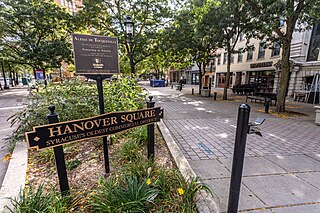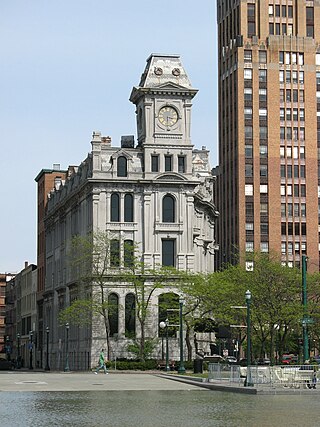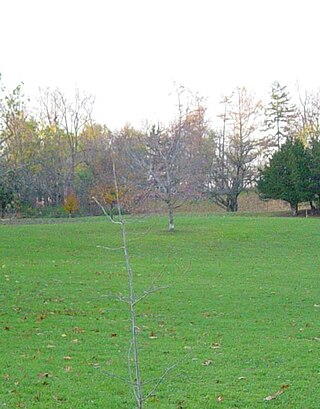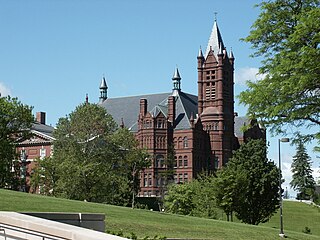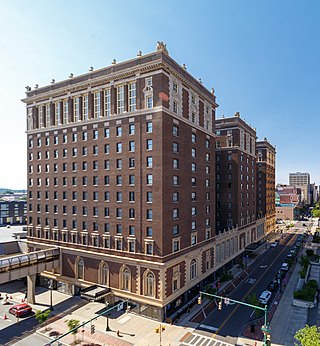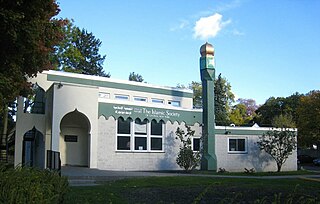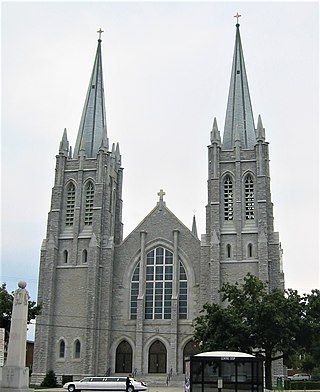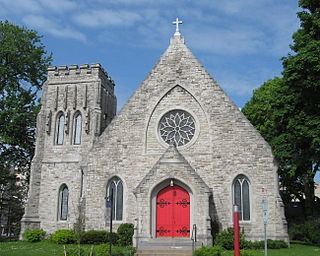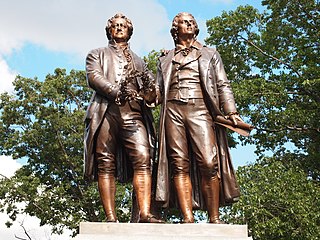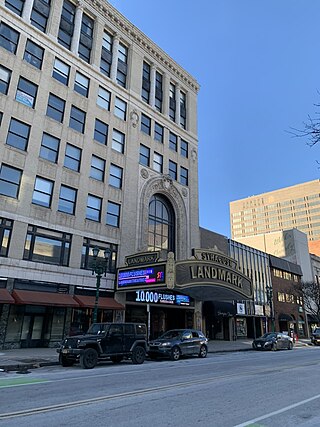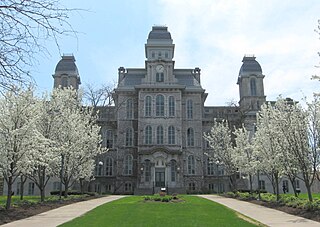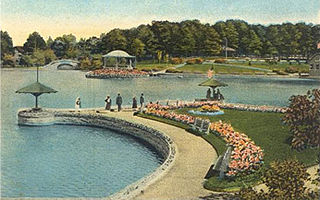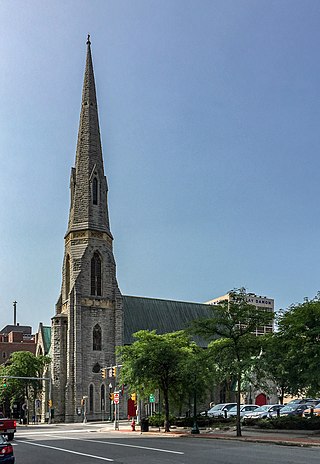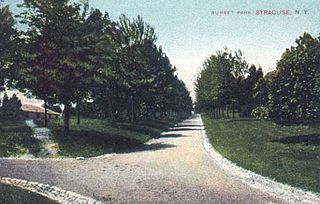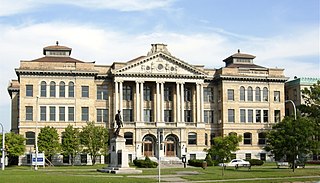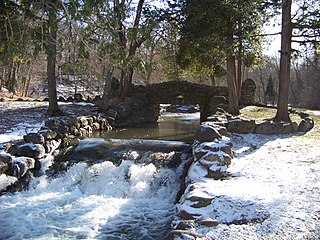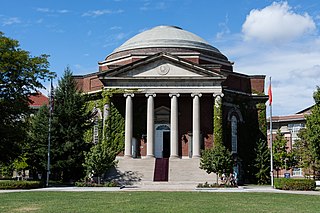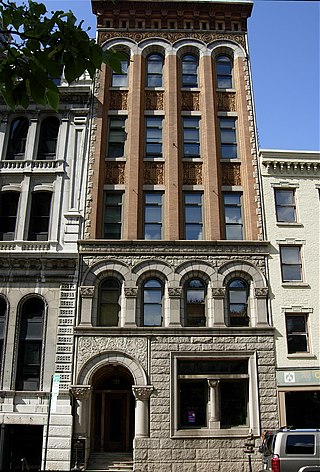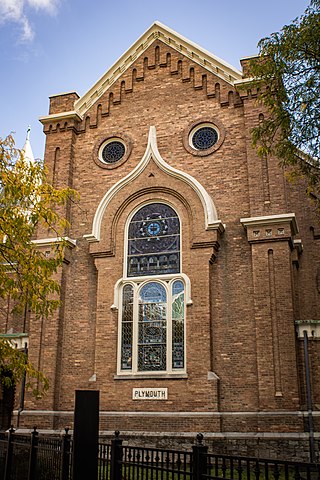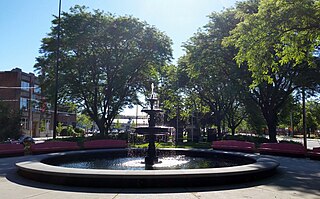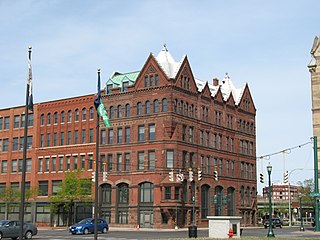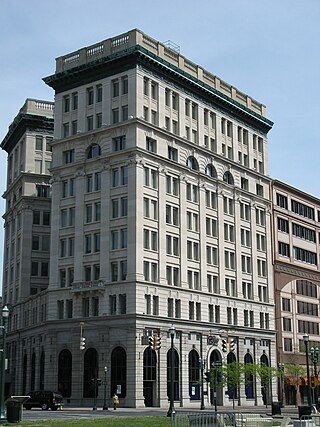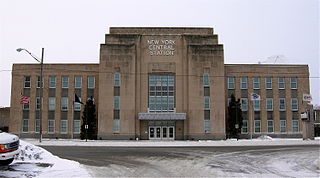28 Sights in Syracuse, United States (with Map and Images)
Legend
Welcome to your journey through the most beautiful sights in Syracuse, United States! Whether you want to discover the city's historical treasures or experience its modern highlights, you'll find everything your heart desires here. Be inspired by our selection and plan your unforgettable adventure in Syracuse. Dive into the diversity of this fascinating city and discover everything it has to offer.
Sightseeing Tours in SyracuseActivities in SyracuseHanover Square in downtown Syracuse is actually a triangle at the intersection of Warren, Water, and East Genesee Streets. The name may also refer to the larger Hanover Square Historic District which includes seventeen historic buildings in the area that was the first commercial district in Syracuse. In the warm weather months, entertainment is common on the plaza around the fountain. Workers in the surrounding office buildings and retail establishments often lunch there.
The Gridley Building, built in 1867 and known previously as the Onondaga County Savings Bank Building, is a prominent historic building on Clinton Square and Hanover Square in Syracuse, New York, United States. It was designed by Horatio Nelson White and was built adjacent to what was then the Erie Canal and is now Erie Boulevard.
3. James Pass Arboretum
The James Pass Arboretum was established by the City of Syracuse, New York through the philanthropy of Adelaide Salisbury Pass and family with the guidance and cooperation of the State College of Forestry to be a classic arboretum in the tradition of the Arnold Arboretum in Boston, Massachusetts, that is, a museum of woody plants designed for education and horticultural display.
4. War Memorial Arena
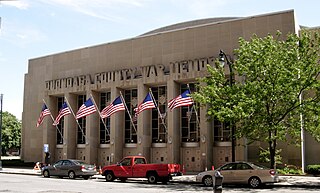
The Upstate Medical University Arena is a multi-purpose arena located in Syracuse, New York. It is part of the Oncenter Complex. Designed by Edgarton and built from 1949 through 1951, the structure is significant as an example of a World War I, World War II and Aroostook War commemorative and as "an early and sophisticated example of single-span thin-shell concrete roof construction." It was listed on the National Register of Historic Places in 1988. The Upstate Medical University Arena has been renovated twice, in 1994 and 2018.
5. Rosamond Gifford Zoo at Burnet Park

The Rosamond Gifford Zoo at Burnet Park is an AZA zoo in Syracuse, New York. It is owned and operated by Onondaga County Parks with support from the Friends of the Rosamond Gifford Zoo. The zoo is home to more than 900 animals representing 216 species on 43 acres (17 ha). Some of the more popular animals include Asian elephants, Humboldt penguins, Amur tigers, a Komodo dragon and the only Giant Pacific octopus exhibit in Central New York. The zoo opened a new Animal Health Center in 2022 that is the largest zoological medical center in New York state outside of the Bronx Zoo.
6. Crouse College
Crouse College, also known as Crouse Memorial College and historically as John Crouse Memorial College for Women, is a building on the Syracuse University campus. It was funded by John R. Crouse, a wealthy Syracuse merchant with the White family, and designed by Archimedes Russell. It is built in the Romanesque revival—Richardsonian Romanesque style.
7. Marriott
The Marriott Syracuse Downtown is a historic hotel located at 100 E. Onondaga St., Syracuse, New York. It was built in 1924 as the Hotel Syracuse and was completely restored in 2016, when it joined the Marriott chain.
8. Islamic Society of Central New York
The Islamic Society of Central New York is a "purpose-built" Sunni mosque and Islamic community centre located on Comstock Avenue in Syracuse, NY. Founded in 1981, by Khaja Qutubuddin, the center serves the needs of Central New York's estimated 15,000 - 20,000 Muslims providing various services and outreach programs for the Muslim and non-Muslim community. It also runs an Islamic cemetery and the Madrasat Al Ihsan/School of Excellence on West Onondaga Street. The mosque is served by a full-time Imam and is administered by an elected Shura Council.
Wikipedia: Islamic Society of Central New York (EN), Website
9. Basilica of the Sacred Heart of Jesus
The Basilica of the Sacred Heart of Jesus is a Catholic parish church and minor basilica in Syracuse, New York. It is located at 927 Park Avenue in the Westside neighborhood. The building was designated a minor basilica by Pope John Paul II on August 27, 1998, and dedicated on October 3, 1999.
Wikipedia: Basilica of the Sacred Heart of Jesus, Syracuse (EN), Website
10. Erie Canal Museum

The Erie Canal Museum is a historical museum about the Erie Canal located in Syracuse, New York. The museum was founded in 1962 and is a private, non-profit corporation. It is housed in the Syracuse Weighlock Building dating from 1850. The Syracuse Weighlock Building was in operation as a weighlock from 1850 to 1883. In 1883 the canal decided to stop charging tolls. The weighlock building was essentially used as a big, elaborate scale to weigh the boats traveling on the Erie Canal and determine how much each boat would pay for a toll. Today the museum includes not only artifacts from the Erie Canal, but also a gallery of present canal life. It is the mission of the museum to help people to learn the rich history of the Erie Canal and that it is not just a thing of the past, but still very much exists today in different forms.
11. Tipperary Hill Heritage Memorial
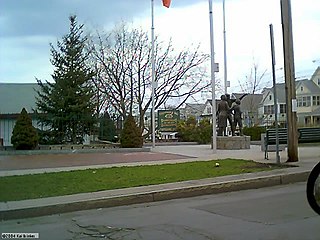
The Tipperary Hill Heritage Memorial, dedicated in 1997, is located on Tipperary Hill in Syracuse, New York. The memorial was erected in honor of early citizens who, in the opinion of local residents, were brave sons of Ireland who stood up to City Hall and won the battle of the "Green over Red" traffic light.
12. Grace Church
Grace Episcopal Church is an historic Episcopal parish in Syracuse, New York. The Gothic Revival building was designed by Horatio Nelson White and was built in 1876. It is located at 819 Madison Avenue near Syracuse University. On March 20, 1973, it was listed on the National Register of Historic Places.
Wikipedia: Grace Episcopal Church (Syracuse, New York) (EN), Website
13. Goethe–Schiller Monument
The Goethe–Schiller Monument in Syracuse, New York incorporates a copper double-statue of the German poets Johann Wolfgang von Goethe (1749–1832) and Friedrich Schiller (1759–1805). It was erected by the German-American organizations of Syracuse and Onondaga County, and was unveiled on October 15, 1911. Schiller, who is on the reader's right in the photograph, was called the "poet of freedom" in the US, and he had an enormous 19th Century following. The Syracuse monument was the last of 13 monuments to Schiller that were erected in US cities. He and Schiller are paired in the statue because of their strong friendship. As Paul Zanker writes, in the statue a "fatherly Goethe gently lays his hand on the shoulder of the restless Schiller, as if to quiet the overzealous passion for freedom of the younger generation." Goethe is holding a laurel wreath in his right hand, and Schiller's right hand is reaching towards it.
14. Museum of Science and Technology
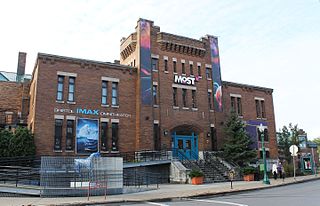
The Milton J. Rubenstein Museum of Science and Technology is a science and technology museum located in the Armory Square neighborhood of Downtown Syracuse, New York. The Museum includes 35,000 square feet of permanent and traveling exhibits, Science Shop, and several programs and events. The MOST is located in the former Syracuse Armory.
Wikipedia: Milton J. Rubenstein Museum of Science and Technology (EN), Website
15. Landmark Theatre
The Landmark Theatre, originally known as Loew's State Theater, is a historic theater from the era of movie palaces, located on South Salina Street in Syracuse, New York, United States. Designed by Thomas W. Lamb, it is the city's only surviving example of the opulent theatrical venues of the 1920s. The Landmark is on the National Register of Historic Places.
Wikipedia: Landmark Theatre (Syracuse, New York) (EN), Website
16. Hall of Languages
The Hall of Languages is a Syracuse University building designed by Horatio Nelson White in the Second Empire architectural style, and built in 1871–73. It was the first building constructed on the Syracuse University campus and the building originally housed the entire university.
17. Upper Onondaga Park
Onondaga Park is an 82.6-acre (33.4 ha) park in the city of Syracuse, New York. Man-made Hiawatha Lake is located within the park, which is situated in Syracuse's Strathmore neighborhood on the city's south side.
18. Saint Paul's Cathedral
St. Paul's Cathedral in Syracuse, New York is the seat of the Diocese of Central New York in the United States Episcopal Church. It was designed by Henry Dudley, who worked with Frank Wills until Wills' early death in 1857.
Wikipedia: Saint Paul's Episcopal Cathedral (Syracuse, New York) (EN)
19. Burnet Park
Burnet Park is the largest park in Syracuse, New York, USA, covering an area of 88 acres (36 ha). It is located on the west end of the city, in the Far Westside in a neighborhood called Tipperary Hill.
20. Greystone Building
Central Technical High School, also known as Central Tech, is located on South Warren Street in Syracuse, New York. It was designed by Archimedes Russell, and built in 1900. At that time, it represented the latest in educational building design. Classes were first held in the school in 1903.
21. Elmwood Park
Elmwood Park is located in the southwestern portion of Syracuse, New York. The park was originally built and opened as a privately owned park in 1893. It is significant as an example of such parks from the Pleasure Ground Era. After the site was purchased by the city of Syracuse in 1927, bridges, embankments, walls and stairs built of wood and stone were added, making the park also representative of the Reform Park Era. The park was added to the National Register of Historic Places in 2005.
22. Hendricks Chapel
Hendricks Chapel is a multi-faith religious, spiritual and cultural chapel located on the campus of Syracuse University in Syracuse, New York. It is located on the Shaw Quadrangle, and serves as the spiritual center of Syracuse University by hosting over ten chaplaincies. The Chapel was funded by a bequest from Francis Hendricks, a former Syracuse mayor, long-time trustee of the university, and the chapel's namesake, in honor of his wife, Eliza Jane Hendricks. The Octagonal, domed brick chapel is built in Georgian Colonial style and is characterized by classical portico supported by columns.
23. Gere Bank Building
The Gere Bank Building is a five-story building located on Water Street in Syracuse, New York. It was designed by Charles Colton, and built in 1894. It is distinctive for its facade and use of contrasting materials. The cost of the building was $150,000, including nearly $50,000 for fireproof vaults in a room beneath the sidewalk. The building was added to the National Register of Historic Places in 1972. It is part of the Hanover Square Historic District. In the warm weather months, entertainment is common on the plaza around the fountain. Workers in the surrounding office buildings and retail establishments often lunch there.
24. Plymouth Congregational Church
Plymouth Congregational Church is located on East Onondaga Street in Syracuse, New York. It was designed in 1858 by Horatio Nelson White in the Romanesque Revival style. The founding congregation was closely associated with the abolitionist movement in Syracuse. It was listed on the National Register of Historic Places in 1997.
Wikipedia: Plymouth Congregational Church (Syracuse, New York) (EN), Website
25. Forman Park
Forman Park, in Syracuse, New York, was first established on June 16, 1839 and was known as Forman Square. The main attraction is a bronze memorial of early civic leaders, Joshua Forman and Lewis H. Redfield.
26. Third National Bankza
The Third National Bank, also known as the Community Chest Building, is located on James Street in Syracuse, New York. It was designed by architect Archimedes Russell in 1885. It is significant for its architecture and for its role in commerce in Syracuse in the late eighteenth century. It was added to the National Register of Historic Places in 1972.
27. M&T Bank Building
The Onondaga County Savings Bank was chartered in 1855 in Syracuse, New York. It was a franchise ahead of its time and had four separate branches by the late 19th century. The Onondaga County Savings Bank Building was constructed in 1897 adjacent to the Erie Canal in Clinton Square.
28. Spectrum Networks
New York Central Railroad Passenger Station is a former railroad station in Syracuse, New York. It was listed on the National Register of Historic Places on September 11, 2009. The former station currently is the home to Spectrum's Central New York operations.
Wikipedia: New York Central Railroad Passenger and Freight Station (EN)
Share
How likely are you to recommend us?
Disclaimer Please be aware of your surroundings and do not enter private property. We are not liable for any damages that occur during the tours.
